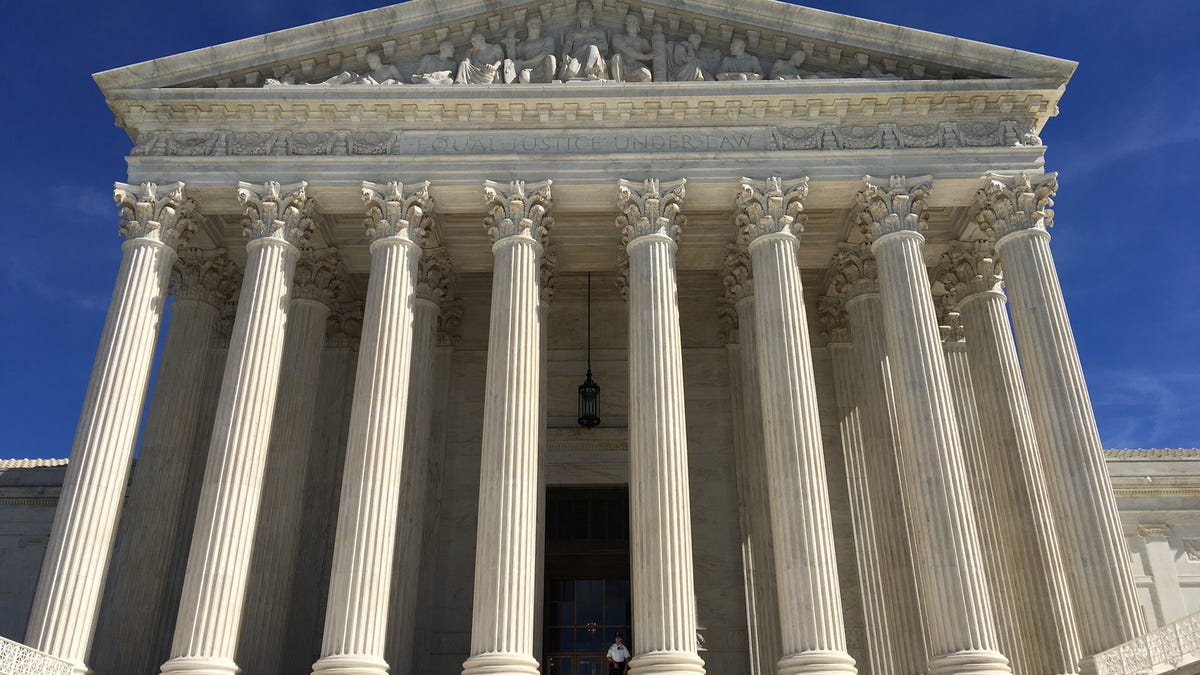Samsung vs. Apple award appeal rejected by US Supreme Court
A $120 million award to Apple is safe, but the patent battles between the companies aren't over yet.

US Supreme Court denied Samsung's appeal against Apple.
The US Supreme Court has rejected a request by Samsung to re-evaluate a $120 million award granted to Apple in a patent infringement dispute.
On Monday, the justices issued a single-line denial, meaning they wouldn't even consider the appeal, and they didn't elaborate on their decision. The case in question involved several patents tied to quick-link, slide-to-unlock and autocorrect features.
In March, Samsung had asked the Supreme Court to look at the 2014 verdict that awarded Apple $120 million for Samsung's patent infringement. A US Circuit Court of Appeals had thrown out the verdict in February 2016, but an en banc federal circuit court then reinstated the verdict in October of that year.
Samsung argued in its request for the Supreme Court to look at its case that the judges were deeply divided. Apple, which didn't want the high court to take the case, argued that the patent laws themselves weren't in dispute and that the case wasn't a good one for setting new legal precedent.
"Our argument was supported by many who believed that the Court should hear the case to reinstate fair standards that promote innovation and prevent abuse of the patent system," Samsung said in a statement Monday. "One of Apple's patents at issue in this case has been invalidated by courts around the world, and yet today's decision allows Apple to unjustly profit from this patent, stunts innovation and places competition in the courtroom rather than the marketplace."
Apple didn't respond to a request for comment Monday.
Meanwhile, the companies' long-running patent disputes will continue on another front.
A new trial slated for mid-May will determine how much Samsung must pay Apple for infringing three of its design patents. Samsung had previously paid Apple $399 million for its infringement, based on the earlier rules.
In that case, Samsung succeeded in getting the Supreme Court to look at the issue. The justices agreed with Samsung that damages could be based on part of a device, not just the entire device. It sent the case back to lower courts.
Originally published Nov. 6 at 8:11 a.m. PT.
Updated at 11:45 a.m. PT: Added comment from Samsung, along with background information.
CNET Magazine: Check out a sample of the stories in CNET's newsstand edition.
Tech Enabled: CNET chronicles tech's role in providing new kinds of accessibility.



